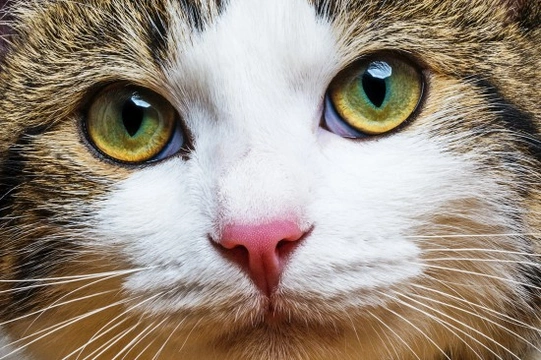
How do Cats Get FIP?
Sadly, feline infectious peritonitis is a very difficult disease to both diagnose and treat and even indoor cats that have been fully vaccinated can develop the condition. To a certain degree most cats will carry this nasty virus because they will have come into contact with it at some point in their lives. The main reason some of our feline friends develop the condition whereas others don't, is all down to their immune systems.
The problem is when a cat's immune system responds too well to the virus, it is in fact this overreaction that causes all the problems. In short, some cats are more at risk and this includes those related to each other due to their genetic similarities and immune systems.
The FIP virus is very common and because most cats will have come into contact with it whether when they were kittens or older even cats that are eventually kept as indoor pets may develop the condition. Vets find it very hard to diagnose the condition which is typically only established once a cat has died and a post mortem examination carried out.
Another problem is that when a cat suffers any sort of renal issue or failure it might not be due to them suffering from the FIP virus because there are many other health issues that can cause renal problems and this includes an inherited kidney disorder.
Should Cats With the Disorder be Kept Separately?
As previously mentioned most cats carry the virus, but it usually only rears its ugly head in younger cats and in households where several cats live together. If the vet suspects one cat may be suffering from the disorder, they may suggest they be kept away from any other cats in the household and to ensure they have their own litter trays. The reason being is that the virus is transmitted via a cat's faeces and when they groom each other.
With this said, if one cat has developed the condition and no others in a household are showing any of the symptoms associated with FIP, the vet might think there would be little point in keeping them apart because if the cats have not already reacted to the virus they would be okay. However, it may transpire that a cat has developed a genetic renal problem and that they are not suffering from feline infectious peritonitis at all and no other cat in a household would be at risk if this should be the case.
Two Forms of FIP
It's worth noting there are two forms of FIP, one being referred to as “wet” also called effusive FIP and the other “dry” which is referred to as non-effusive FIP. The actual virus is called feline coronavirus (FcoV). Sadly, there is no vaccine available at the present time to protect our feline friends from the developing the condition.
The good news is that although most cats will have at some point come into contact with the virus, the majority just experience a mild case of diarrhoea which clears up pretty quickly without the need for veterinary intervention.
Symptoms to Watch Out For
The symptoms that first manifest themselves include the following although these can be associated with other health issues which is why vets often find it very hard to diagnose whether a cat is suffering from FIP or something else altogether. As such, vets are unable to solely base their diagnosis on any clinical signs.
- Slight fluctuating fever
- Lethargy
- Lack of appetite
- A distended stomach due to an accumulation of fluid in the abdomen or chest cavity
- Difficulty breathing
Can the Condition be Treated?
As previously mentioned there is no known treatment for the condition, but once a cat shows any signs of FIP, a vet may suggest giving them supportive care which could include prescribing anti-inflammatory medication which could relieve some of the symptoms and improve a cat's quality of life. However, in more advanced stages it would be kinder to put a cat to sleep to avoid unnecessary suffering.
Prevention
The only real way of preventing this nasty disease from spreading is to avoid keeping large numbers of cats in the same environment or household. Ideally, no more than four cats should be kept together as this reduces the chances of the FIP virus from spreading. Other ways of reducing the risk include the following:
- Litter trays should be kept well away from food and water bowls
- Litter trays need to be disinfected on a daily basis
- Each cat should have their own litter tray
- Cats should be kept in a hygienic environment away from stressful situations
Conclusion
Sadly, the majority of cats come into contact with the FIP virus at some point in their lives which means even an indoor cat can develop the symptoms. The good news is that most cats just suffer a mild case of diarrhoea which typically clears up pretty quickly without having to take them to the vet for any sort of treatment. However, if a cat does develop any of the more severe symptoms, it can be really hard to diagnose the condition because there are no definite symptoms associated with the disorder. As such a vet would not be able to base a diagnosis on any clinical signs alone.



